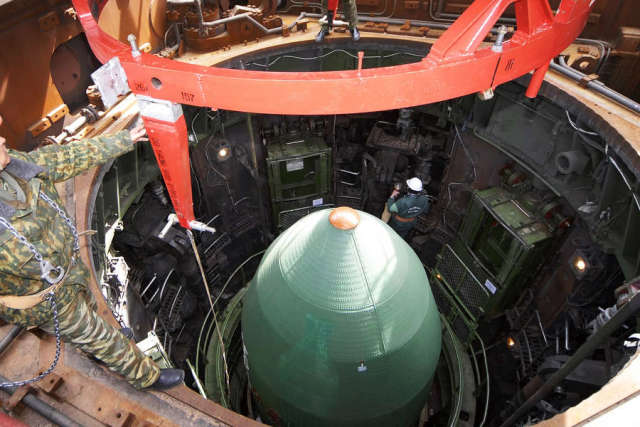Experts explained why Russian nuclear weapons caused concern among US intelligence
Russia is expanding and improving its nuclear arsenal and increasing the capabilities of strategic and non-strategic weapons, which is the "main danger" for Washington. This is stated in the published report of the office of the Director of National Intelligence of the United States, Evril Haines. "Newspaper.Ru" analyzed the document.
"According to our estimates, Russia will remain the largest and most capable rival of the United States in terms of weapons of mass destruction in the foreseeable future, as it expands and improves its nuclear arsenal and increases the capabilities of strategic and non-strategic weapons. This is the main danger for the United States," the document published by the US National Intelligence Service says.
According to Washington's estimates, "Moscow considers its nuclear potential necessary to ensure deterrence and fulfillment of tasks in the event of a potential conflict with the United States and NATO." It is noted that Moscow is developing "delivery systems designed to overcome the US missile defense system."
According to the editor of the magazine "Arsenal of the Fatherland", military expert Alexei Leonkov, by predicting the superiority of Russia's nuclear potential, the United States is trying to prepare the public for the fact that they "are not doing well with nuclear weapons."
"They say in advance that Russia is their main rival in this story. But she has always been the main rival. What has changed? Russia now has the most advanced nuclear weapons. The share of modern weapons and military equipment in Russia's nuclear triad, which includes strategic aviation, intercontinental ballistic missiles and nuclear submarines, is 88%. This is official data. When the Sarmat enters service, there will be an absolute upgrade," Leonkov is sure.
The newspaper of the Russian Ministry of Defense "Krasnaya Zvezda" previously wrote that, starting from 2022, it is planned to gradually withdraw the heavy-class "Voevoda" stationary-based missile system from the Strategic Missile Forces (RVSN) and replace it with the "Sarmat". It was noted that work is already underway in the 62nd Missile Division of the Uzhursky Division to prepare the main missile regiment for rearmament to the new Sarmat complex.
"The Pentagon has not been engaged in ballistic missiles for thirty years. I have not upgraded - neither warheads nor Minuteman III missiles. Now, during the events in Ukraine, the United States has raised hysteria about nuclear weapons and canceled the test launch of a missile planned for March 5, allegedly an updated version of the Minuteman III, to show that they are not putting their strategic forces on high alert. In fact, there was nothing new there," Leonkov said.
A similar point of view is shared by Konstantin Bogdanov, senior researcher at the IMEMO Center for International Security of the Russian Academy of Sciences.
"At the moment, the United States has deployed only the Minuteman III intercontinental ballistic missile developed in the 1970s. Now they are developing a new generation of ICBMs, but it will probably be on combat duty in 8-10 years. This is at best," he said.
Military expert Dmitry Litovkin, in turn, noted that Moscow has received "unique weapons" in recent years. "Russia has a global-range cruise missile "Burevestnik". After the launch, it can hang in the air for years and "fall" when it is needed, and where it is needed," Litovkin concluded.
On March 22, 2018, the rocket received the name "Petrel" according to the results of voting on the website of the Ministry of Defense.
In September 2020, the head of British military intelligence, Lieutenant General Jim Hockenhall, announced the possibility of this missile "to remain in a state of waiting in the air almost indefinitely and strike targets from unexpected directions, which makes modern missile defense systems practically useless."
Currently, judging by the open data, the tests of the "Petrel" are continuing.
Irina Alshayeva

